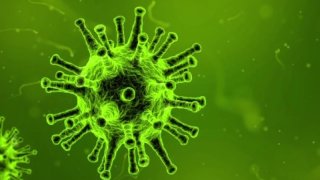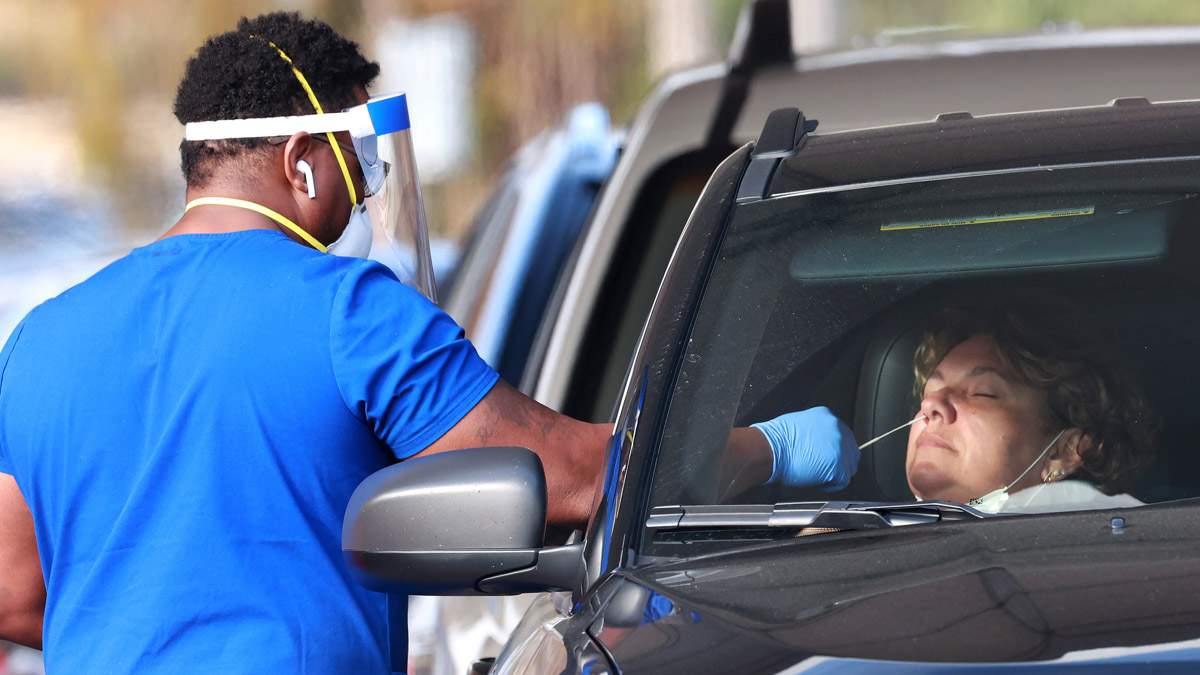
Across Tarrant and Collin counties in North Texas on Sunday there were 21 more COVID-19 deaths and another 782 new reported cases of the virus.
Denton and Dallas counties do not report COVID-19 cases or deaths on Sundays.
Details for Tarrant and Collin counties are below and are based on data reported Sunday, Feb. 28, by county officials, local health departments and the state health department.
Got a question about the COVID-19 vaccine? Get the answers here in our FAQ.
Get DFW local news, weather forecasts and entertainment stories to your inbox. Sign up for NBC DFW newsletters.
Dallas County
Dallas County Health and Human Services does not report COVID-19 case numbers on Sundays. Numbers below are for Saturday, Feb. 27, and Friday, Feb. 26.
Tarrant County
Tarrant County Public Health added another 19 COVID-19 deaths Sunday along with 593 new cases of the virus. In the last seven days, the county has announced 3,841 new and probable cases of the virus, an average of 548 per day, and 106 deaths, an average of 15 deaths per day.
Since March 2020, the county has reported a total of 242,243 cases of the virus including 206,094 confirmed cases (PCR) and 36,149 probable cases (antigen). There have been 2,873 deaths attributed to the virus; there are currently an estimated 223,376 recoveries leaving 15,997 estimated active cases in the county.
Denton County
Denton County Public Health does not report COVID-19 case numbers on Sundays. Numbers below are for Saturday, Feb. 27, and Friday, Feb. 26.
Collin County
The Texas Department of State Health Services reports two new COVID-19 deaths in Collin County on Sunday along with an additional 127 newly confirmed and 62 probable cases of the virus.
Since March 2020, the DSHS has reported a total of 83,289 cases of the virus in Collin County including 70,047 confirmed cases (PCR) and 13,242 probable cases (antigen). There have been 721 deaths attributed to the virus; there are currently an estimated 265,606 recoveries leaving estimated 13,741 active cases in the county.
Want to Get on a Vaccine Waitlist?
County health departments have launched waitlists for adults 16 years old and over.
You can register to recieve the vaccination in Collin, Dallas, Denton and Tarrant counties. Links are below:
Waitlist Links: Collin - Search Waitlist | Dallas | Denton | Tarrant
You do not need to be a resident of the county to register for a COVID-19 vaccine in that county -- registration is open to anyone in Texas. For those without internet access, Tarrant County is also taking registrations by phone at 817-248-6299. In Dallas County, call the DCHHS vaccine hotline at 1-855-IMMUNE9 (1-855-466-8639). In Denton County, call 940-349-2585.
For a more detailed breakdown of who is included in each priority group in Texas, see this page from the Texas DSHS.
COVID-19 Latest
COVID-19 Vaccines
In Texas, the COVID-19 vaccines are currently available to anyone over the age of 5. The vaccines are still not approved for children younger than 5 however -- those trials are ongoing.
Once vaccinated, people who received either the Moderna or Pfizer vaccines are expected to get some level of protection within a couple of weeks after the first shot, but full protection may not happen until a couple of weeks after the second shot. For those who receive the Johnson & Johnson vaccine -- there is only one shot needed.
As of Jan. 3, 2022, it is also recommended those who are age 12 and up and who have been fully vaccinated receive a booster as early as five months after their last dose, for a total of three shots. The vaccine made by Pfizer and its partner BioNTech is the only U.S. option for children of any age.
As for even younger children, kid-size doses for 5- to 11-year-olds rolled out in November and experts said healthy youngsters should be protected after their second dose for a while. But the FDA also said on Jan. 3, 2022, that if children that young have severely weakened immune systems, they will be allowed a third dose 28 days after their second. That’s the same third-dose timing already recommended for immune-compromised teens and adults.
Pfizer and Moderna are studying their vaccines, in even smaller doses, for children younger than 5.
Even when fully vaccinated, it's still possible to become infected by the virus since none of the vaccines offer 100% protection from infection. With that in mind, even if you've been vaccinated it's still a good idea to wear a mask and keep some separation between strangers or those whose vaccination status is unclear.
Get DFW local news, weather forecasts and entertainment stories to your inbox. Sign up for NBC DFW newsletters.


